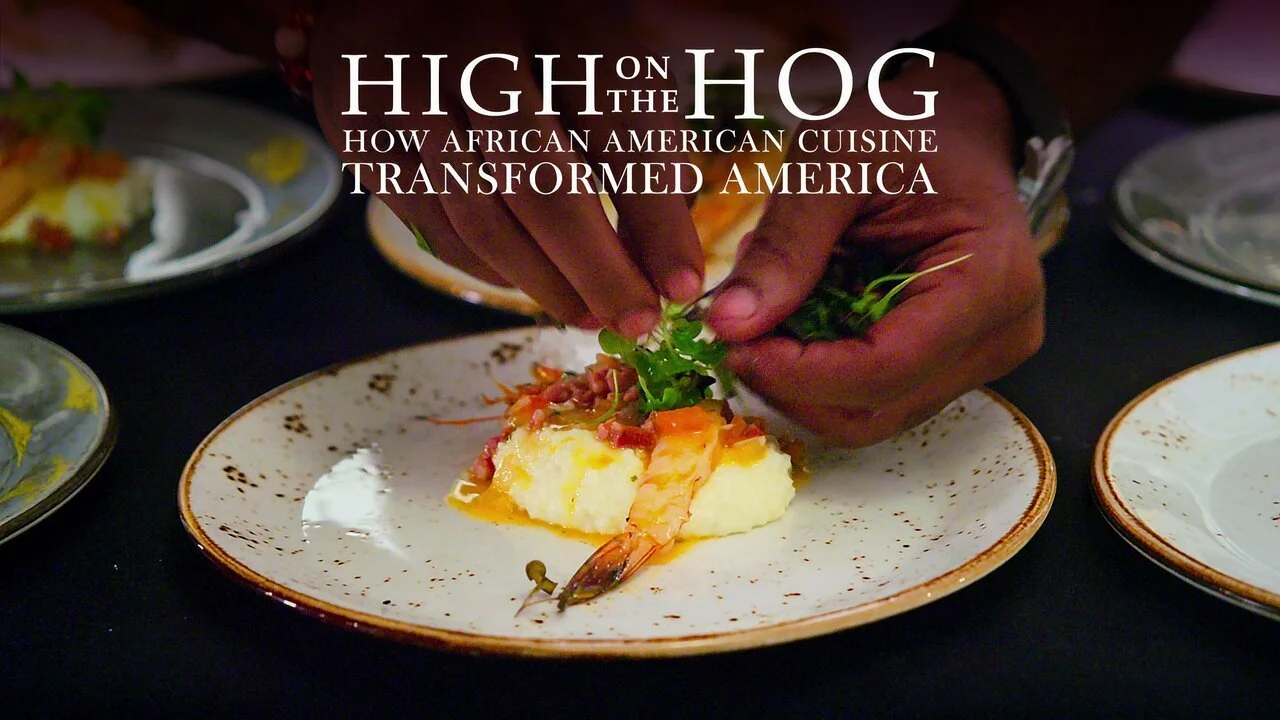How food connects us to the continent via High on The Hog
by Kathia Woods
Food is more than just something that feeds our bodies; it is also a vessel that feeds our souls. The show High on the Hog demonstrates how food connects us to the continent and our ancestors. Stephen Satterfield, a chef, sommelier, and food writer, will be our tour guide on this enthralling journey. Jessica B. Harris, a scholar, cook, and food writer, inspired the series. The beauty of Netflix's High on the Hog is that it shows how enslaved Africans' knowledge of food not only helped African Americans retain their culture, but also laid the groundwork for American cuisine. We witness the perilous journey of the last walk-in Benin to the Texas barbecue joints. High on the Hog is not just a food series but a visual history lesson.
The series begins on the continent more specifically Benin. It there that Stephens meets up with the woman that inspired the series. The hustle and bustle of the street market reminded me of my visits to the “Feira” (in Brazilian Portuguese that means market) with my grandmother. We would wander to eat from street vendors while she meticulously selected her produce. I saw the foundation of the food that was the fabric of the cooking lessons I learned from her in those ingredients. When Stephen was in Benin, most meals were stews made with fresh ingredients and seasoned with hot spices. By the time the series arrives in America, you can see our ancestors adjusting their diets due to a lack of good protein at their disposal. Many people were astute enough to start their own gardens where they could grow produce, amongst them Okra. Okra was one of the most sought-after vegetables and made the journey with them from the motherland. It was used in a variety of dishes while still retaining its nutritional value.
I'd be remiss if I didn't mention Philadelphia's contribution to the food industry. Catering, yes, catering originated in the city of brotherly love. Black Cooks are responsible for this innovative business model.
Let us take a moment to relish in the accomplishments of our ancestors. It’s important for those of us who live in the modern era to appreciate how impressive it was for a group of people who weren't allowed to read or write to create cuisine that fed the richest of the rich. Chefs like Hercules Posey created culinary delights for a general who would become our first President. Chefs like James Hemmings (Thomas Jefferson’s chef) absorbed everything French and combined it with his southern knowledge to create one of our most essential staples, mac, and cheese.
These chefs are neither celebrated nor studied in the culinary world. High on the Hog proves what many of us already knew: there isn't a single part of this country that hasn't benefited from or been influenced by African culture. Only a few of us were taught the recipes that connect us to the continent by our grandmothers or elders. We must continue to share and teach our contributions to the global food debate, not just in America. High on the Hog is a realization that, even when it comes to food, Africans paved the way for America's first financial boom. It's also important to remember that while the ancestors fed their masters, many were left to fend for themselves.
I hope High on the Hog inspires you to buy the book and go back in your family tree to learn your ancestors' recipes.

